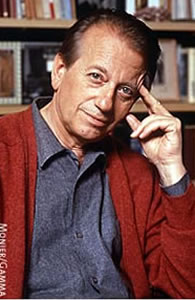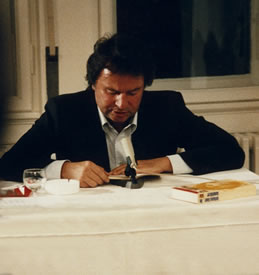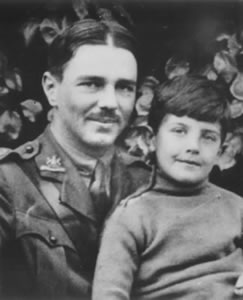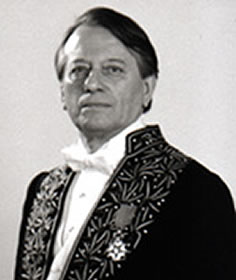Dolce far niente

In het Abramtsevo park door Ilya Ostroukhov, 1885
Herbstbild
Dies ist ein Herbsttag, wie ich keinen sah!
Die Luft ist still, als atmete man kaum,
Und dennoch fallen raschelnd, fern und nah,
Die schönsten Früchte ab von jedem Baum.
O stört sie nicht, die Feier der Natur!
Dies ist die Lese, die sie selber hält,
Denn heute löst sich von den Zweigen nur,
Was vor dem milden Strahl der Sonne fällt.

Friedrich Hebbel (18 maart 1813 – 13 december 1863)
Het Hebbelhaus (museum) in Wesselburen, de geboorteplaats van Friedrich Hebbel
De Tsjechische schrijver en politicus Václav Havel werd op 5 oktober 1936 in Praag geboren. Zie ook alle tags voor Václav Havel op dit blog.
Uit:The Power of the Powerless (Vertaald door Paul Wilson)
“Even this very superficial overview should make it clear that the system in which we live has very little in common with a classical dictatorship. In the first place, our system is not limited in a local, geographical sense; rather it holds sway over a huge power bloc controlled by one of the two superpowers. And although it quite naturally exhibits a number of local and historical variations, the range of these variations is fundamentally circumscribed by a single, unifying framework throughout the power bloc. Not only is the dictatorship everywhere based on the same principles and structured in the same way (that is, in the way evolved by the ruling superpower), but each country has been completely penetrated by a network of manipulatory instruments controlled by the superpower centre and totally subordinated to its interests. In the stalemated world of nuclear parity, of course, that circumstance endows the system with an unprecedented degree of external stability compared with classical dictatorships. Many local crises which, in an isolated state, would lead to a change in the system, can be resolved through direct intervention by the armed forces of the rest of the bloc. In the second place, if a feature of classical dictatorships is their lack of historical roots (frequently they appear to be no more than historical freaks, the fortuitous consequence of fortuitous social processes or of human and mob tendencies), the same cannot be said so facilely about our system. For even though our dictatorship has long since alienated itself completely from the social movements that gave birth to it, the authenticity of these movements (and I am thinking of the proletarian and socialist movements of the nineteenth century) give it undeniable historicity. These origins provided a solid foundation of sorts on which it could build until it became the utterly new social and political reality it is today, which has become so inextricably a part of the structure of the modern world. A feature of those historical origins was the ‘correct understanding’ of social conflicts in the period from which those original movements emerged.”

Václav Havel (5 oktober 1936 – 18 december 2011)
Cover van de Tsjechische uitgave
De Argentijnse dichter, essayist en literatuurwetenschapper Roberto Juarroz werd geboren in Coronel Dorrego op 5 oktober 1925. Zie ook alle tags voor Roberto Juarroz op dit blog.
IV, 44
Een enkele keer herlees ik mezelf.
Als ik dat doe,
lijkt mij wie dat schreef
achterop te zijn geraakt,
wie weet om te wachten tot ik terugkeer
of om van ver naar ons te kijken,
of daarna een dwarsweg te zijn ingeslagen
om verder weer bij ons te komen.
Jezelf herlezen is vaag vermoeden
dat het leven dat voorbij ging
elders op ons wacht,
tegendraads als een verloren zoon
die op de drempel staat te wachten
op de onwaarschijnlijke terugkomst van zijn vader.
Achter elk voorheen geschreven woord
doemen, als een stiekem volkje, alle woorden op
die wij niet opschrijven konden.
Daarom vindt wie zichzelf herleest,
veeleer dan de visioenen die wij waren,
de visioenen die vruchteloos aanspraak op ons maakten
maar met zonderlinge aandrang aanwezig bleven
als algen die zich hebben vastgezet
op wat wij halvelings begrijpend hebben vergaard.
Was de tijd niet opgebruikt,
dan loonde het misschien de moeite jezelf te herlezen
alleen al om die aankleefsels
Eighth.2
Words too fall to the ground,
like birds suddenly driven crazy
by their own movements,
like objects that suddenly lose their balance,
like men who stumble even when there’s no obstacle,
like dolls estranged by their own rigidity.
Then, the words themselves build a stairway
from the ground,
to climb up to human discourse,
to its stutter
or final sentence.
But some words remain forever fallen.
And sometimes we find such words
in an almost larval mimesis,
as if they knew someone were going to come
gather them up and build a new language,
a language made up entirely of fallen words.
Vertaald door Mariolein Sabarte Belacortu

Roberto Juarroz (5 oktober 1925 – 31 maart 1995)
De Amerikaanse dichter en criticus John Taggart werd geboren op 5 oktober 1942 in Guthrie Center, Iowa. Zie ook alle tags voor John Taggart op dit blog.
Precious Lord
2
The first time Mahalia does it as one interconnected phrase
she does it as three in one three words in one phrase
three in one: “take-en-n—my-ah-aah—ha-an-nd”
Mahalia does it in the same year in 1956 the same year as Aretha
same but different the second time it is more aggressive
it’s more aggressive: “take-ake my-ah han-and”
Mahalia was a big fine woman Mahalia was denuded
she sang “Precious Lord” at the funeral of Martin Luther King
Aretha sang “Precious Lord” at the funeral of Mahalia.
Thomas Dorsey met Mahalia met her for the first time in 1928
it was in 1928 that Georgia Tom moaned with Ma Rainey
he moaned with Ma Rainey he moaned and he groaned with Ma Rainey
he met Mahalia and he taught her how to moan
“you teach them how to say their words in a moanful way”
to say their words how to say his words
Mahalia was a big fine woman Mahalia was denuded
Dorsey knew the heavier the voice the better the singer
3
Al Green has a softened voice he has a voice made softened
he was made to sing softened by Willie Mitchell in 1972
softened and softened and softened
Al Green became Rev. Al Green of the Full Gospel Tabernacle in 1980
a tabernacle is a fixed or movable habitation
habitation where you stay together with the lord
Al Green has a softened voice he has a voice made softened
he was made to sing softened on “Let’s Stay Together”
in 1982 he was made to sing softened on “Precious Lord.”
Photograph of Thomas Dorsey photograph of a smooth operator
photograph of Georgia Tom photo of a smooth operator
the photo smoothed out retouched softened
one side of the face completely light one side of the face all dark
one side merges into the light smoothed out softened
one side merges into the dark smoothed out made softened
in the photograph a smooth operator is lighting a cigarette
slender fingers hold a matchbox hold a match
slender fingers hold a softened flame against the softened dark.

John Taggart (Guthrie Center, 5 oktober 1942)
De Nederlandse dichter, schrijver en journalist K. L. Poll, (volledige naam Kornelis Lubbertus Poll) werd geboren in Dordrecht op 5 oktober 1927. Zie ook alle tags voor K. L. Poll op dit blog.
Uit: Het Meer van de Ondank. Een tijdgedicht
Oktober
4
Ik ben, zei Helmut Schmidt,
een oude man, een groot deel
van het leven ligt achter me.
Als ik terugkijk, en vergelijk,
als ik me afvraag
welke stemming nu overheerst,
is dat geen angst
voor het lot van de wereld.
Carl Friedrich von Weiszäcker:
stemmingen zijn moeilijk ontwarbare gehelen,
het gaat om argumenten.
Voor mij blijft de vraag,
kunnen mensen de sprong maken
naar een cultuur zonder oorlog?
Die cultuur heeft nog niet bestaan.
Vergissingen kunnen wij ons niet veroorloven.
Het verlangen naar hegemonie blijft.
Wij behoren niet tot wat de biologen noemen
de fehlerfreundliche organismen.
Gezien en gehoord,
in Rettenbach, Midden-Europa:
twee wijze Duitse politici.

K.L. Poll (5 oktober 1927 – 14 november 1990)
Helmut Schmidt
De Ierse schrijver Flann O’Brien werd geboren op 5 oktober 1911 in Strabane, County Tyrone. Zie ook alle tags voor Flann O’Brien op dit blog.
Uit: At Swim-Two-Birds
“My uncle drained away the remainder of his tea and arranged his cup and saucer in the centre of his bacon plate in a token that his meal was at an end. He then blessed himself and sat for a time drawing air into his mouth with a hissing sound in an attempt to extract foodstuff from the crevices of his dentures. Subsequently he pursed his mouth and swallowed something. A boy of your age, he said at last, who gives himself up to the sin of sloth – what in God’s name is going to happen to him when he goes out to face the world? Boys but I often wonder what the world is coming to, I do indeed. Tell me this, do you ever open a book at all? I open several books every day, I answered. You open your granny, said my uncle. 0 I know the game you are at above in your bedroom. I am not as stupid as I look. I’ll warrant you that. He got up from the table and went out to the hall, sending back his voice to annoy me in his absence. Tell me this, did you press my Sunday trousers? I forgot, I said. What? I forgot, I shouted. Well that is very nice, he called, very nice indeed. Oh, trust you to forget. God look down on us and pity us this night and day. Will you forget again today? No, I answered. As he opened the hall-door, he was saying to himself in a low tone: Lord save us! The slam of the door released me from my anger. I finished my collation and retired to my bedroom, standing for a time at the window and observing the street-scene arranged below me that morning. Rain was coming softly from the low sky. I lit my cigarette and then took my letter from my pocket, opened it and read it.
Mail from V. Wright, Wyvern Cottage, Newmarket, Suffolk. V. Wright, the backer’s friend. Dear Friend and member. Thanks for your faith in me, it is very comforting to know that I have clients who are sportsmen who do not lose heart when the luck is ’the wrong way’. Bounty Queen was indeed a great disappointment tho’ many were of opinion that she had dead-heated with the leaders but more of that anon. Considering I have been posting information from the same address since 1926, anybody leaving me now because of bad luck would indeed be a ‘puzzler’. You had the losers why not ‘row in’ and make a packet over the winners that are now our due. So much for the past, now for the future. SENSATIONAL NEWS has reached me that certain interests have planned a gigantic coup involving a certain animal who has been saved for the past month. INFORMATION from the RIGHT QUARTER notifies me that a sum of £5,000 at least will be wagered. The animal in question will be slipped at the right moment with the right man up and there will be a GOLDEN OPPORTUNITY to all who act `pronto’ and give their bookmaker the shock of his life. To all my friends forwarding 6d. and two S.A.E.’s I will present this THREE-STAR CAST-IRON PLUNGER and we will have the win of our lives and all the bad luck forgotten. We will feel ‘bucked’ when this animal flashes past the post at a fancy price.”

Flann O’Brien (5 oktober 1911 – 1 april 1966)
Portret door Micheál Ó’Nualláin, 1957
Onafhankelijk van geboortedata
De Vlaamse dichter en psycholoog Sven Cooremans werd geboren in Rumst 1970. Zie ook alle tags voor Sven Cooremans op dit blog.
Een mens hult een steen in het zachte
Een mens hult een steen in het zachte
binnen van een brood en wacht op de meeuwen,
de mouwen, de huid en het hart van de haas
gestroopt. Er ligt verf op de vensterbank
waar mijn ellebogen rusten. Op de velden
staat een scary man. Roerloos maakt hij
dag na dag een bootleg van het ruisen
van een zonevreemde pijn. In de kamer
bedekken schetsen de perenhouten vloer,
zwijgt mijn vrouw een tijd en met haar tong
langs haar lippen zwijgt mijn vrouw een tijd
voor ze toegeeft (ik heb dit uit liefde gedaan)
en het bed en haar stilte halfdonker maakt.

Sven Cooremans (Rumst, 1970)
Zie voor nog meer schrijvers van de 5e oktober ook mijn blog van 5 oktober 2017 en eveneens mijn blog van 5 oktober 2014 deel 2.




























